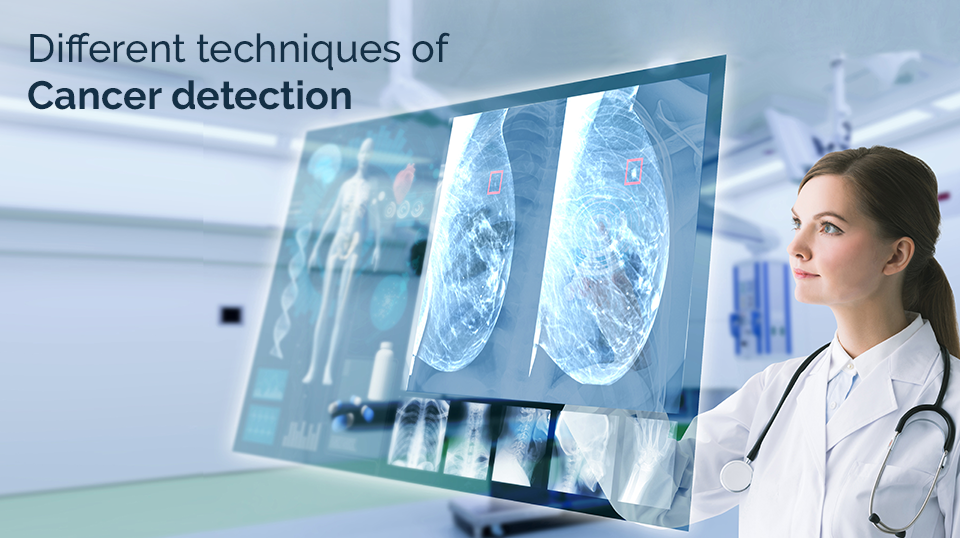Cancer is a leading cause of death worldwide, but the good news is that early detection can significantly increase the chances of successful treatment. The earlier cancer is detected, the more likely it is that treatments will work effectively, and the higher the survival rate. While some types of cancer may not show any symptoms until they have progressed, others may exhibit warning signs that can be detected early. Understanding how to identify these signs, undergoing regular screenings, and knowing when to seek medical help can make all the difference in combating the disease. In this article, we will explore the methods and tips for detecting cancer in its early stages.
Why Early Detection of Cancer is Crucial?
Early detection of cancer can improve the likelihood of effective treatment, reduce the complexity of treatments, and improve long-term survival rates. When cancer is caught early, it is often localized to one area and has not yet spread to other parts of the body. This gives doctors a better chance to treat it successfully through surgery, chemotherapy, radiation therapy, or a combination of treatments.

Moreover, when cancer is detected in its early stages, the treatment options are often less aggressive, and recovery can be quicker with fewer side effects. Detecting cancer early allows for a more optimistic prognosis, making it imperative for individuals to stay informed about the signs and screening tests available.
1. Know Your Family History
One of the most significant factors in detecting cancer early is knowing your family’s medical history. Genetic factors play a role in many types of cancer, and having a family history of cancer can increase your risk. For instance, if a close family member has had breast cancer, colon cancer, or ovarian cancer, your risk may be higher, and you may need to start screenings earlier than usual.
What to Do:
Consult with a healthcare provider to evaluate your risk based on family history. Genetic counseling and testing can provide further insights into potential inherited cancer risks. If necessary, your doctor may recommend early screening or preventive measures.
2. Regular Screening Tests
Routine cancer screenings are crucial for detecting cancer at its earliest stages, often before symptoms appear. Different types of cancer have specific screening tests that can detect abnormal changes in the body, allowing for early intervention.
Common Screening Tests:
- Breast Cancer: Mammograms for women starting at age 40 or earlier if there is a family history.
- Cervical Cancer: Pap smear and HPV testing for women, beginning at age 21.
- Colon Cancer: Colonoscopies starting at age 45 or earlier for those with a family history or other risk factors.
- Prostate Cancer: PSA (prostate-specific antigen) blood test for men, typically recommended around age 50 or earlier if there are risk factors.
- Lung Cancer: Low-dose CT scans for heavy smokers or those at high risk.
What to Do:
Adhere to the recommended screening guidelines for your age and risk factors. Speak with your doctor about any family history or specific concerns that may require earlier or more frequent screenings.
3. Self-Exams
Self-examinations are a proactive way to detect potential signs of cancer early. While they are not a substitute for professional medical exams, performing regular self-exams can help you notice any changes in your body. This includes checking for lumps, changes in skin, or unexplained bleeding.
Common Self-Exams:
- Breast self-exam: Check for any unusual lumps or changes in breast tissue.
- Skin self-exam: Look for new or changing moles, growths, or changes in the appearance of your skin.
- Testicular self-exam: Men should regularly check for lumps or changes in the testicles.
- Oral self-exam: Examine your mouth, gums, and tongue for any unusual sores or growths.
What to Do:
Perform these self-exams regularly and report any abnormalities to your doctor. Early detection through self-awareness can help you catch signs of cancer before they develop further.
4. Pay Attention to Unexplained Symptoms
Certain symptoms, if persistent, may be an early indication of cancer. These symptoms can be related to many different types of cancer, so it’s important not to ignore them. Some common warning signs include:
- Unexplained weight loss: Sudden and significant weight loss without changes in diet or exercise could signal cancer, particularly cancers of the digestive system.
- Persistent fatigue: Chronic tiredness, even after a full night’s sleep, may be a sign of leukemia, colon cancer, or other types of cancer.
- Pain: Unexplained or persistent pain that doesn’t go away could be a symptom of various cancers, including bone or brain cancer.
- Changes in bowel or bladder habits: Any long-term changes in urination, bowel movements, or the presence of blood in stool or urine should be investigated.
- Difficulty swallowing or hoarseness: Ongoing issues with swallowing or changes in your voice may be signs of throat, esophageal, or lung cancer.
What to Do:
If you experience any unexplained symptoms that persist for weeks or worsen over time, make an appointment with your doctor. These could be early warning signs of cancer that require medical attention.
5. Genetic Testing and Counseling
For individuals with a family history of cancer or other risk factors, genetic testing can help identify inherited mutations that increase the risk of cancer. Certain gene mutations, like those in the BRCA1 or BRCA2 genes, can significantly raise the likelihood of developing breast, ovarian, and other cancers.
Why It Matters:
Genetic testing can guide decisions about cancer prevention and early detection strategies. If a gene mutation is identified, your healthcare provider may recommend specific screenings or preventive treatments to reduce your risk.
What to Do:
Discuss genetic testing with your doctor if you have a family history of cancer. This can provide valuable insights and help you take proactive steps in managing your health.
6. Healthy Lifestyle Choices
Living a healthy lifestyle plays a critical role in reducing your overall cancer risk. While lifestyle changes may not guarantee cancer prevention, they can reduce your chances of developing the disease. Key lifestyle factors include maintaining a healthy weight, eating a balanced diet, exercising regularly, limiting alcohol consumption, and avoiding tobacco.

What to Do:
Make healthy choices every day to reduce your risk of cancer. Engage in at least 30 minutes of moderate physical activity most days of the week, avoid processed foods, and maintain a balanced diet rich in fruits, vegetables, and whole grains.
7. Regular Doctor Visits and Communication
Building a good relationship with your healthcare provider and having regular check-ups is essential for early cancer detection. Many cancers do not show symptoms in the early stages, so regular doctor visits are key for catching subtle changes in health that could signal cancer.
What to Do:
Schedule regular check-ups with your doctor, even when you feel healthy. This allows your doctor to monitor your health and detect potential issues early.
Conclusion
Detecting cancer in its early stages is a critical step in increasing the chances of successful treatment. Regular screenings, self-exams, and staying informed about changes in your body are key practices for identifying cancer before it becomes advanced. By following these steps and maintaining open communication with your healthcare provider, you can improve your chances of early detection, which plays a vital role in surviving and overcoming cancer. Stay proactive and vigilant about your health—early detection can save lives.

Leave a Reply